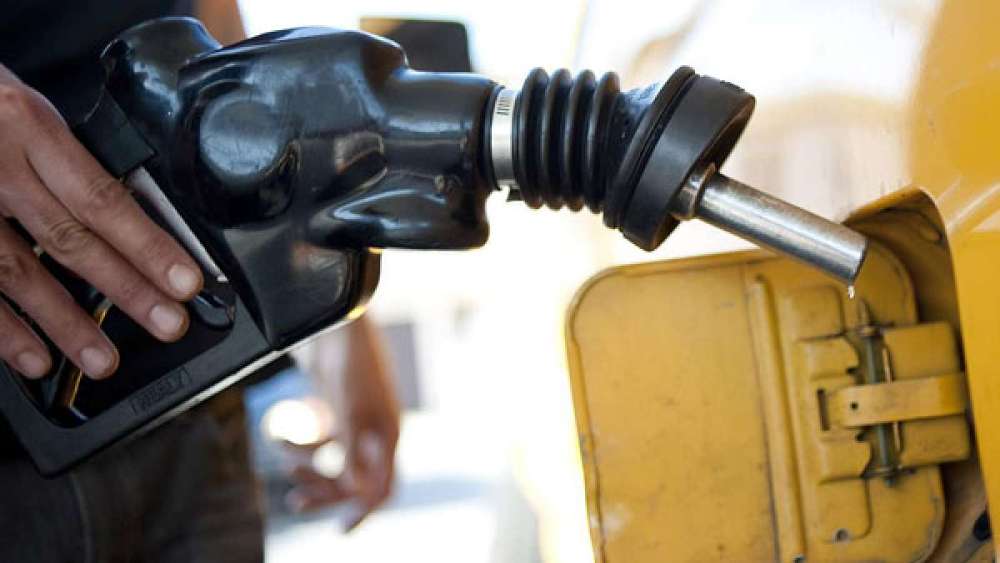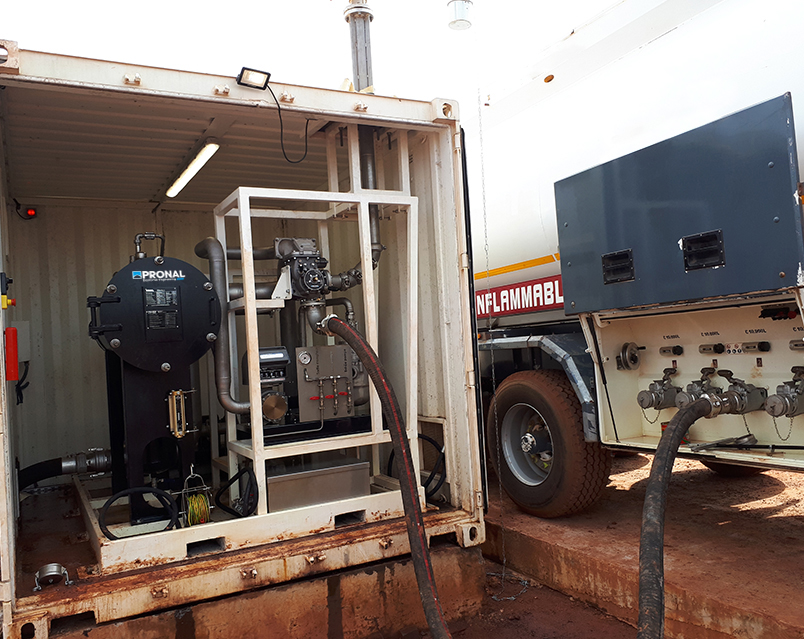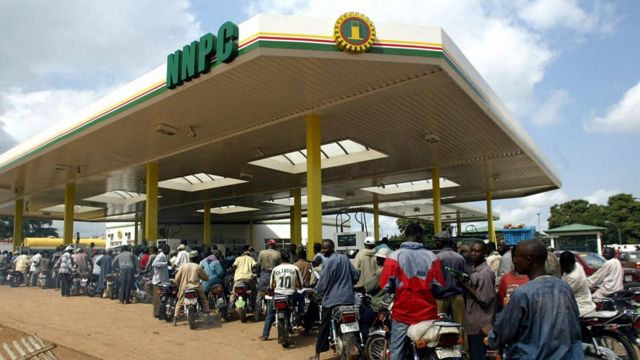Some commuters in the Federal Capital Territory (FCT), have decried increase in transportation fares due to fuel scarcity, making movement in the territory difficult.
The commuters on Wednesday lamented that their greatest challenge was finding commercial vehicles to their destinations, especially to their places of business or work.
They said this might be because most of the taxi drivers were either on the long queues in petrol stations or were off the road due to no petrol.
They therefore called on the authorities concerned to speedily intervene to bring the situation back to normal as many Nigerians were suffering.
Mr Calistus Emeka, who lives around Mararaba axis, said he had to pay N400 from his area to Wuse area, instead of N200.
Emeka said as a cleaner, working at the Secretariat, his salary was meager and he could barely afford to continue to pay the increased fare.
According to him, if nothing is done soon, he may not be able to go to work in the coming days.
Mr Gabriel Oko, who also lives along the Mararaba axis, said he had to stand by the road side for hours to get a vehicle to work.
Oko said: “Before getting to town from my area, I stood for hours waiting to get a taxi and could not find one, I had to take a bike to a certain point before getting a taxi.
“This situation is very pathetic, even with your money, you cannot get a vehicle to convey you to your destination. I just pray this does not linger for a long time.”
Ms Agatha Sule, who lives along the Gwagwalada axis, said she used to pay N400 to Area 1, but due to the lack of fuel situation, she paid N700 to town.
“I know there is fuel scarcity in town but I was not prepared for the increased cost of transportation.
“I work as a secretary in my office. If not for the fact that I have my office keys with me, I would not have gone to work today.
“This increase is just too much. How do they expect very low income earners like us to survive?
“The problem is that we are the ones even feeling this pain more.”
Mrs Lucy James, another commuter, said she paid N350 from Apo axis to Wuse unlike the usual fare of N250.
James prayed that relevant authorities would intervene, saying this was posing a great challenge for many Nigerians.
Another passenger who lives in Kubwa/Dutse axis, Theophilus Ada, said the cost of transportation to town had also doubled within the past two days.
In a similar vein, Mrs Joy Benjamin, a Civil Servant, said she was forced to buy 10 litres of fuel from black market at N5,000 to get to work.
Benjamin said she had to do that because many fuel stations were not selling the product and the ones selling had very long queues and she did not have time to wait.
Meanwhile, some motorists who spoke with NAN, revealed that some major fuel stations preferred to sell the product to black marketers who paid them extra money to get it.
According to Mr Maurice Nze, the attendants have taken advantage of the situation to hide the fuel in the morning time, only to dispense it at night to black marketers.
“A good number of filling stations are hoarding their products in the day time, but sell it at night to make more gains, this act has contributed to the suffering we are now witnessing.
“I want to appeal to the government to set up a taskforce to check activities of some of these filling stations both during the day and at night,” Nze appealed.
A taxi driver, Mr Rufus Nwafor said he spent close to three hours at the station to get fuel.
According to Rufus, the scarcity is really affecting their business because even after spending so much time at the station to get fuel, passengers find it difficult to pay.
“We have increased the fare, not because the price has changed at the station but because of the time we spend trying to get the fuel.
“We are not happy increasing the fare but we have to find a way to make up for the time wasted trying to get fuel.”
Another taxi driver, Mr Bolanle Segun said he had to buy black market this morning because he could not get fuel at the station.
Segun said: “This day I do not force anybody to enter my vehicle, if I tell you the price and you are not ready to pay, I will not carry you.
“This is because we spend hours trying to get fuel and today, just when it was close to my turn to buy, the attendant said the fuel has finished.
“I had to go and buy from black market along the road side because my tank was empty.’’
NAN reports that the Nigerian National Petroleum Corporation Ltd. (NNPC) on Tuesday said it distributed one billion litres of safe Premium Motor Spirit to various fuel stations nationwide.
The NNPC also noted that 2.3 billion litres of PMS will arrive Nigeria before the end of February to address the current situation and restore sufficiency.
Similarly, black marketers on Wednesday took advantage of the lingering scarcity of Premium Motor Spirit (PMS) to make brisk business from residents and motorists in Lagos State.
The ongoing scarcity of PMS, also known as petrol, is due to the withdrawal of the off-spec products imported into the country from the market.
A NAN correspondent who monitored the situation at Oshodi, Ojota, Ikeja, Mushin, Surulere, Iyana-Ipaja, Abule Egba and Lekki observed that many filling stations were still not selling petrol.
Long queues were seen at the few stations selling, with both private and commercial motorists as well residents besieging them as early as 5a.m.
The vehicular queues led to traffic gridlock on some major roads across the state, especially on the Lekki-Epe axis.
Black marketers with various sizes of kegs were seen hawking petrol within a few meters of the filling stations.
Their operations were noticeable in areas such as Ikorodu Road, Mushin, Mobolaji Bank Anthony Way and Surulere.
Some of the marketers were selling a litre of fuel for prices between N180 to N250 per litre depending on the location, demand and negotiating skills of the buyer.
A commercial bus driver, Mr Wasiu Oyeleke, told NAN that he bought 10 litres of PMS for N2,000.
“Yesterday, I could not get fuel after I closed for the day and none of the stations in my area is selling.
“I managed to buy from these boys (black marketers) in Mushin which I am using now,” he said.
Another commercial bus driver, Mr Emma Udoh, told NAN that he was offered 20 litres of fuel for N3,600 by one of the black marketers but he refused.
He said: “I remember my last experience in their hands when I bought fuel from them and nearly destroyed my car.
“I have been here for almost three hours and will wait until I am able to get fuel but it is very frustrating for all of us.
A tailor, Mr Anu Ayorinde, said operators of small businesses were also suffering from the petrol scarcity due to epileptic power supply by the electricity Distribution Companies.
Ayorinde said they had to get fuel from the black market for their generators, rather than wait on the queue for hours and be unable to deliver jobs on time for their customers.
The Nigerian National Petroleum Company Ltd. had in a statement issued on Tuesday said it had put measures in place to accelerate nationwide distribution of PMS.
The NNPC said the distribution was disrupted by the quarantine of methanol blended petrol.
The company said it had began 24-hour operations at its depots and retail outlets, adding that it had over one billion litres of certified PMS stock that was safe for use in vehicles and machineries.






